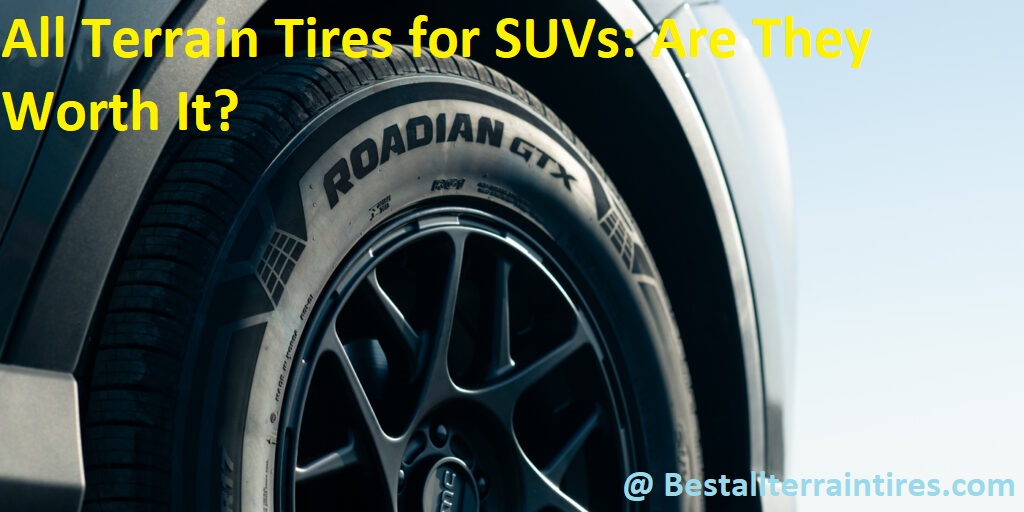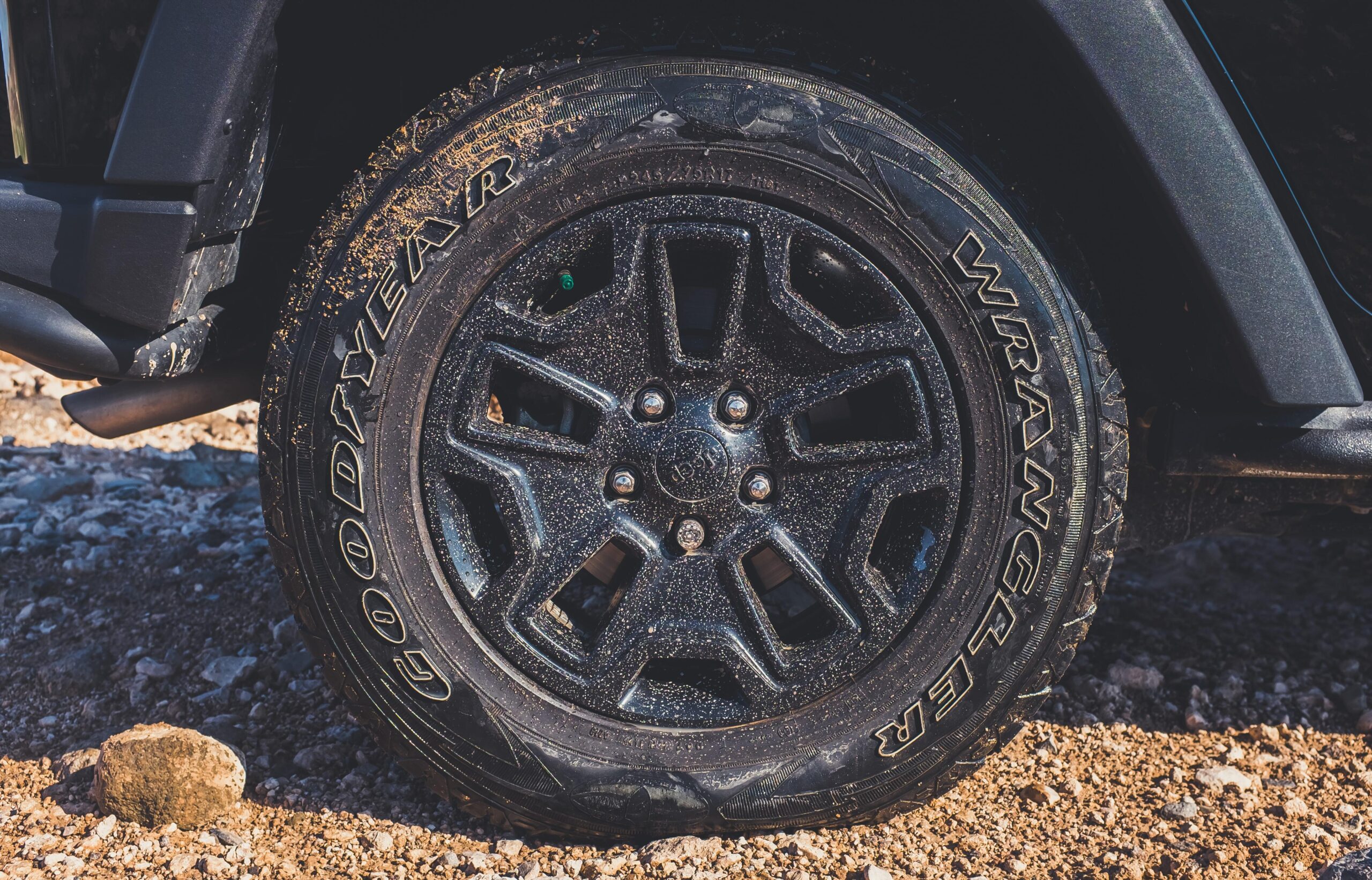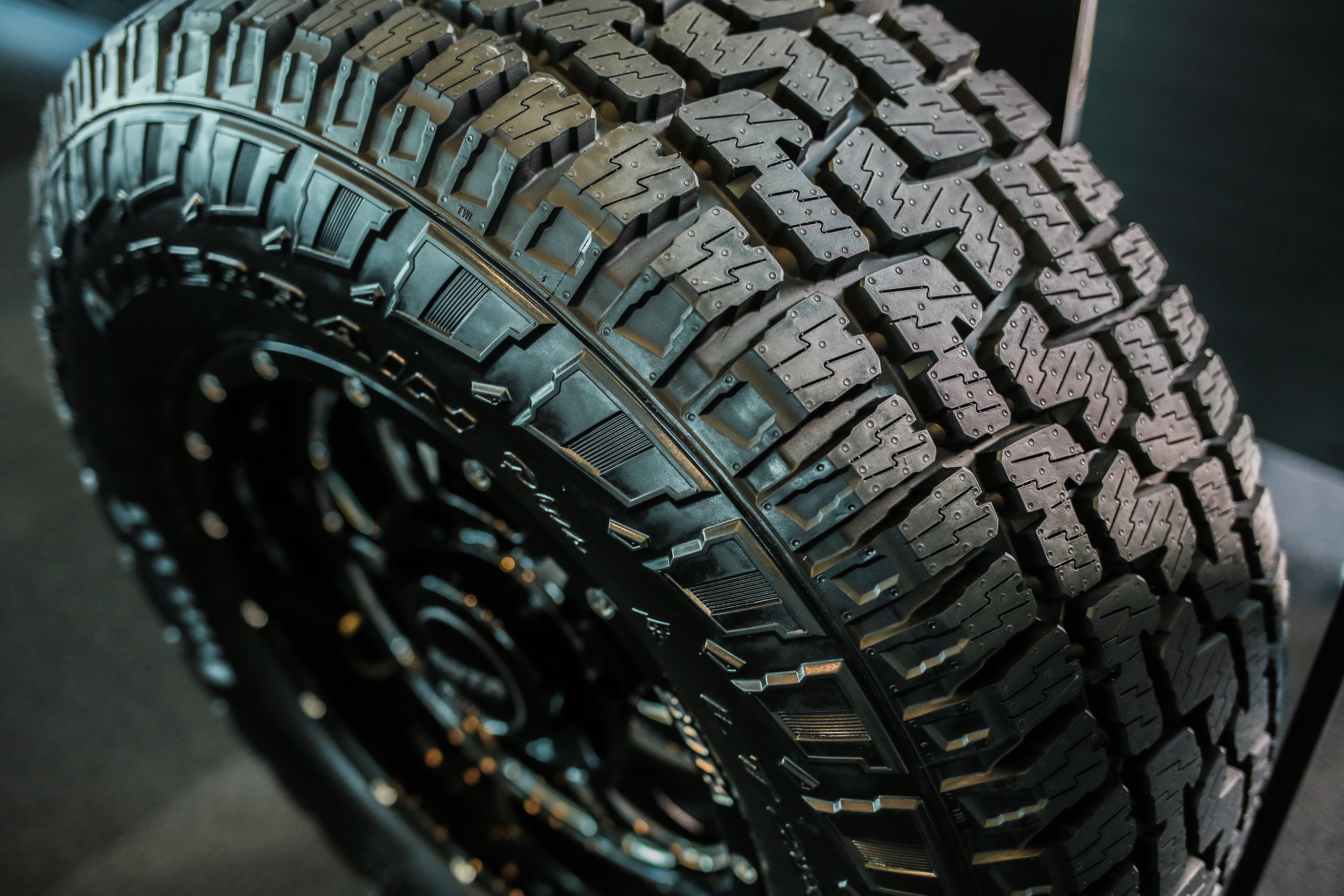Are you looking for a tire that can be used under all driving conditions? Are you having a hard time deciding if all terrain tires are the right investment for your SUV? Look no further, this guide will help you understand the advantages of all terrain tires and how they can optimize your driving experience. You won’t regret the decision!
The idea of running all-terrain tires on your SUV has become increasingly popular in recent years. Although they offer a smoother and more comfortable ride, they also tend to be more expensive than standard tires. So, if you’re considering running all-terrain tires on your SUV, it’s important that you weigh all of the pros and cons before making a final decision.
In this guide, we will provide a complete overview of all-terrain SUVs tires so that you can make an informed decision about whether or not they are the right choice for you. We will cover topics such as cost comparisons, off-roading performance and benefits, maintenance tips and more. With this guide, we hope to give you the information needed to make the best decision for your needs.
Factors to consider when choosing all-terrain tires for SUVs
When you’re shopping for all-terrain tires for your SUV, there are several factors to keep in mind. It’s important to research the pros and cons of the various tire types and take into account factors like vehicle type, terrain type and climate. Keep reading to learn more about each of these factors so you can determine which all-terrain tires will best serve your needs.
Vehicle Type: The type of SUV you drive will greatly impact the tire you choose. Be sure to select tires that are designed specifically for your engine size, suspension system, weight and other key components. All-terrain tires can be broken down into categories based on vehicle type such as light trucks or 4WDs. Depending on your driving habits and terrain, this may mean selecting an all-terrain rating split between highway use and off-road use.
Terrain Type: When it comes to selecting all-terrain tires for SUVs, it’s also important to consider what kind of terrain you drive on most often. All-terrain tires are designed to have better grip on a variety of surfaces including mud, sand, gravel or snow. Choose wisely based on how often you plan on tackling these surfaces. For instance, if most of your driving is done on highways or city roads with little offroading, then an all season tire may be the better choice due to its reduced noise levels and improved performance in wet weather conditions compared with all terrain tires.
Climate: The climate where you drive also plays a role in selecting the right set of tires for your SUV. For instance, if most of your driving is done in hot climates then select a set that utilizes an enhanced rubber compound mix specifically designed for heat resistance while sacrificing some winter performance capabilities if needed otherwise choose deep centered treads if cold climates since extreme winters require greater traction control from deeper focused grooves which offer better stability in snow and ice covered roads.

Type of driving and terrain
The type of driving you do and the terrain you traverse are two important factors to consider when evaluating if all terrain tires are the best choice for your vehicle.
All-terrain tires offer enhanced traction on off-road surfaces, such as dirt, mud, snow, and loose gravel. However, because all-terrain tires are designed for multiple surfaces, they may not provide the same level of performance on paved roads.
If you visit unpaved roads often or regularly drive offroad, these tires may be a good choice for you. If most of your time is spent driving on paved roads and highways only occasionally venturing onto a dirt path or trail to reach a vacation destination or hidden fishing spot, then other more specialized types of tires may be more appropriate.
Tire size and load capacity
When looking at tire sizes, you’ll find three important elements marked on the sidewalls of a tire—aspect ratio, width, and rim size. The aspect ratio is a numerical value that represents the tire’s profile in relation to its width while the width is a two-digit number (in millimeters) indicating how wide the tire is. The rim size indicates which wheel the tire sits on—typically ranging between 14 and 20 inches.
Load capacity is another important factor when it comes to tires for SUV vehicles. It simply means the maximum weight each tire can carry. Load capacity is determined by the size of your vehicle, so when selecting new tires for your SUV, you should always look for tires with an appropriate load range rating to accommodate your vehicle’s size and weight. All information regarding tire size and load capacity will be printed on the sides of your current tires or in your vehicle’s owner’s manual.
Tread pattern and depth
When examining all terrain tires for SUVs, one of the important factors to consider is the tread pattern and depth. This is especially true if you plan to encounter off-road conditions. Generally, all terrain tires will have tread blocks with larger edges, allowing the tire to grip a variety of surfaces easily. The depth of these treads can vary from approximately 10/32-inch to 11/32 inches. During your research, it is also important to ensure that the tire has deep enough grooves between every row of blocks for better performance on wet roads or off-roading.

Additionally, some tires can include extra features such as sipes for improved grip on icy roads or a unique lugs pattern for additional traction when in muddy circumstances. Finally, ‘selfcleaning’ treads mean that debris from off-roading won’t get stuck because there are more gaps and cavities that allow dirt and mud to escape more easily.
Quality and brand reputation
When it comes to all terrain tires, quality and brand reputation matter more than ever. It is important to select tires that are made with a high-quality rubber to ensure optimal performance. Additionally, checking the product reviews and customer feedback can help you get a better idea of how well these tires work in different situations.
You should also look out for tires that offer exceptional grip and traction. Many manufacturers design all terrain tires with extra treads that can create better traction in wet or icy conditions. Furthermore, make sure the treads are wear-resistant so they’ll last longer before you need to replace them.
Finally, you should consider the brand’s reputation when shopping for an all terrain tire for your SUV. Some of the most popular brands specialize in off-road tires and have been creating these kinds of designs for a long time, so it remains a good option if you want top quality performance from a reputable source.
III. Installation and maintenance of all-terrain tires for SUVs
Installing all-terrain tires for SUVs can be a complex process. To ensure that your all-terrain tires are properly installed and maintained, it is important to follow these steps.
First, inspect the wheel wells of your SUV before mounting the tires. Make sure that the wheel well is clean and free of any debris or obstructions, as any irregularities can interfere with tire installation or performance.
Second, place the tire on to the wheel rim and align the valve stems while being careful not to damage either component in the process. Carefully lift and slide your mounted wheel onto the wheel studs of your SUV and begin tightening lug nuts using a cross pattern in order to ensure even tension around each nut.
Third, inflate tires according to their recommended maximum pressure level as stated on their sidewall and also confirm by taking a tire pressure reading with an accurate gauge system. Keep an eye on tire tread wear patterns throughout use as improper inflation levels can cause uneven wear resulting in vibration or handling issues over time.
Finally, take measures like replacing valve stems when needed and checking for lugs that may have come loose during driving into account when maintaining all-terrain tires for SUVs by routinely performing maintenance checks regularly such as at each oil change interval or seasonally.
Proper installation procedures
It is important to have your all terrain tires installed correctly in order to ensure maximum performance and longevity. Before installation, make sure the lug nuts are tightened according to factory specifications and that you check your tires for any cuts or punctures. You also want to double-check the pressure of all four tires prior to installation.
A good rule of thumb is to have the all terrain tire installed by a professional because they know what to look for and how best to balance the tires. When it comes time for installation, you’ll want a professional installer who is trained in proper techniques and possesses the right tools, such as torque wrenches and tire pressure gauges, etc.
Moreover, using technology such as air inflation balancing can further help provide better performance from your all terrain tires. Wheel alignment should also be performed once your tire(s) are installed properly in order to ensure a smooth ride quality over even the toughest roads.
Regular tire maintenance and care
Caring for and maintaining your tires properly is essential if you want them to perform as well as possible, regardless of their type. Proper maintenance will ensure that your all terrain tires last longer, improve their performance, and offer you better value for money. Here are some key tips and advice to help you keep your all terrain tires in tip-top condition:
* Check the tire pressure regularly – The correct tire pressure is critical both for safety and improved performance. Your car manufacturer should have recommended pressure levels in the manual or on the inside of the driver’s door jamb. Make sure to check it periodically to ensure that the pressure is optimal for your needs.
* Inspect your tires frequently – Visual inspections are important for spotting potential problems with your all terrain SUV tires before they become serious. Walking around your car once a month should suffice; look out for signs of cracking, bulges, cuts, blistering or other irregularities that could impact performance or safety.
* Rotate your tires – Regular rotation is beneficial not only to ensure even wear between front and rear wheels but also ensures that each tire is holding its optimal form as they age which helps maintain optimum comfort while driving – especially helpful when tackling different terrains with off-road capabilities of SUVs.
* Avoid overloading vehicles – Be careful not to overload a vehicle equipped with all terrain SUV tires as this puts extra strain on them which can shorten their lifespan significantly or otherwise cause them harm – sometimes performance adjustments should be made when carrying heavy loads so check with the manufacturer’s guidelines first before loading up heavily!
Replacement and disposal of worn-out tires
When you eventually have to replace your SUV’s broken or worn-out tires, consider investing in all-terrain tires. All terrain tires provide improved handling and performance on rougher terrain, making them ideal for on/off-road driving. Their increased tread depth and larger contact patch ensure that you’ll have better traction in snow, mud and other unpredictable types of terrain.
If you’re mainly an off-road driver, all terrain tires will give your vehicle the confidence it needs to tackle inclines and bumps. The downside of all terrain tires is that they are more expensive than regular street tires, but can easily last two to three times longer with proper maintenance and rotation. Before buying new all terrain tires for your SUV, weigh the pros and cons carefully and consider how often you actually plan to use them off the beaten path.

When disposing of worn-out or aging SUV tires, it’s important to remember that tire disposal can have a significant environmental impact. Canvas local tire recycling stations or services that accept used car parts that can be repurposed or recycled into new materials. This practice helps keep landfills clear while supporting creative reusing initiatives around your area.
Conclusion
In conclusion, it can be said that all-terrain tires for SUVs are a great investment if you live in an area with rough terrain or drive on dirt roads regularly. The added grip and durability can make your driving experience more enjoyable and safe. Additionally, they last longer than standard tires so you won’t have to replace them as often, meaning they’ll save you money in the long run.
As with any purchase, consider your individual needs before making a decision regarding which type of tire is right for you.
FAQs
Is it worth getting all terrain tyres?
It depends on your driving needs. If you frequently drive on both paved roads and off-road terrains, then all-terrain tires can be a good choice.
Are all-terrain tires good for highway driving?
Yes, all-terrain tires can be suitable for highway driving, as they are designed to provide good traction on both wet and dry roads.
How many kms do all terrain tyres last?
The lifespan of all-terrain tires depends on various factors such as driving conditions, maintenance, and usage. Typically, they can last between 50,000 to 80,000 kilometers.
How long do all terrain tyres last?
All-terrain tires can last between 3 to 6 years, depending on factors such as usage, maintenance, and driving conditions.
Do all terrain Tyres use more fuel?
All-terrain tires can use slightly more fuel than regular tires, as their design focuses on providing traction on both off-road and on-road terrains.
How much difference do all terrain Tyres make?
All-terrain tires can significantly improve the off-road performance of a vehicle, as they are designed to provide better traction and stability on uneven and challenging terrains.
What are disadvantages of all terrain Tyres?
All-terrain tires can be noisier and less comfortable on paved roads compared to regular tires. They may also wear out faster on paved surfaces and cost more than regular tires.
Are all-terrain tires good in rain?
Yes, all-terrain tires can provide good traction on wet roads due to their design that includes deeper treads and wider grooves.
Do all-terrain tires ride rough?
All-terrain tires can ride rougher than regular tires due to their design, which includes larger tread blocks and stiffer sidewalls.
Which tires are better all-terrain or mud terrain?
All-terrain tires are suitable for drivers who need a balance between on-road and off-road performance, while mud-terrain tires are better suited for off-road driving, as they provide more traction on muddy and rocky terrains.
See Also-
- Best all terrain tires for 22 inch rims
- Best all terrain tires for chevy silverado 1500
- Best All Terrain Tires For Daily Driving
- Best All Terrain Tires For Diesel Trucks
- Best All Terrain Light Truck Tires
Jose T. Salazar is a passionate automotive enthusiast and tire expert, dedicated to helping fellow drivers conquer all types of terrain. With a lifelong fascination for cars and a deep knowledge of tires, he has made it his mission to guide readers towards making informed decisions about their tire choices.Read more about our team members.

